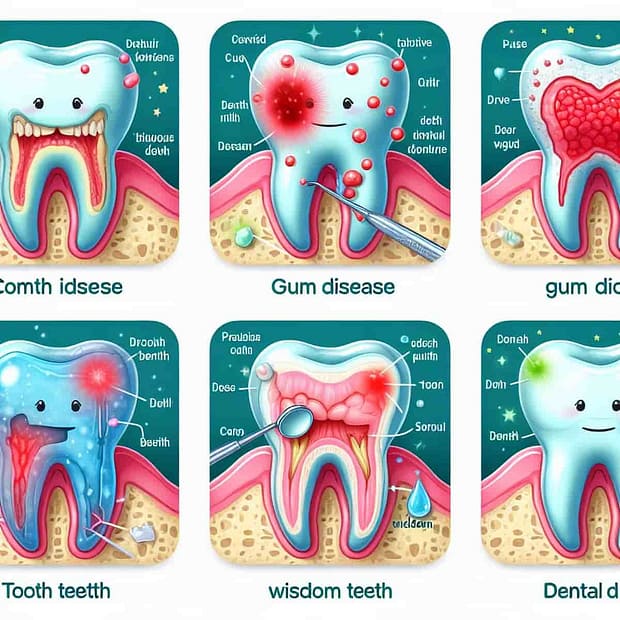Tooth loss, whether due to injury, decay, or other factors, can significantly impact oral health, aesthetics, and quality of life. Understanding the causes, recognizing the impacts, and exploring replacement options are crucial for addressing tooth loss and restoring oral function and confidence. Let’s delve into the details:
Key Takeaways:
- Tooth loss can result from various factors, including dental decay, gum disease, trauma, and aging.
- Impacts of tooth loss may include difficulty chewing, speech problems, changes in facial appearance, and decreased self-esteem.
- Replacement options for missing teeth include dental implants, bridges, and dentures, each with its benefits and considerations.
Causes of Tooth Loss:
Tooth loss can occur due to several reasons, including:
- Dental Decay (Cavities): Untreated cavities can lead to extensive tooth damage and eventual tooth loss.
- Gum Disease (Periodontitis): Advanced gum disease can cause gums to recede and teeth to loosen, leading to tooth loss.
- Trauma: Accidents, falls, or injuries to the mouth can result in tooth fracture or avulsion (complete removal from the socket).
- Aging: As we age, teeth may become more susceptible to decay, gum disease, and other oral health issues, increasing the risk of tooth loss.
- Medical Conditions: Certain medical conditions such as diabetes, osteoporosis, and autoimmune disorders may increase the risk of tooth loss.
- Poor Oral Hygiene: Inadequate brushing, flossing, and dental care can contribute to gum disease and tooth decay, leading to tooth loss over time.
Impacts of Tooth Loss:
Tooth loss can have various impacts on oral health, function, and well-being, including:
- Difficulty Chewing: Missing teeth can make chewing and biting difficult, leading to dietary limitations and nutritional deficiencies.
- Speech Problems: Gaps caused by missing teeth can affect speech clarity and pronunciation, particularly with certain sounds.
- Changes in Facial Appearance: Tooth loss can cause changes in facial structure, such as jawbone resorption and sagging of facial muscles, leading to an aged appearance.
- Self-Esteem Issues: Tooth loss can impact self-confidence and self-esteem, particularly if visible teeth are affected, leading to social anxiety and avoidance of social interactions.
- Shifting of Teeth: Surrounding teeth may shift or drift into the space left by missing teeth, leading to misalignment and bite problems.
- Bone Loss: Tooth loss can lead to bone loss in the jawbone over time, affecting the stability of remaining teeth and potential future tooth replacement options.
Replacement Options for Missing Teeth:
Several options are available for replacing missing teeth, each with its benefits and considerations:
- Dental Implants: Implants are titanium posts surgically placed into the jawbone, providing a stable foundation for artificial teeth (crowns). Implants closely mimic the function and appearance of natural teeth and help prevent bone loss in the jaw.
- Dental Bridges: Bridges consist of artificial teeth (pontics) supported by adjacent natural teeth or dental implants. They can be used to replace one or more missing teeth and restore chewing function and aesthetics.
- Dentures: Dentures are removable prosthetic devices that replace multiple missing teeth. They can be partial (replacing some teeth) or complete (replacing all teeth in an arch) and may require adjustment and maintenance over time.
Prevention of Tooth Loss:
Preventing tooth loss involves adopting good oral hygiene habits and seeking regular dental care:
- Brush and Floss Regularly: Clean teeth twice daily with fluoride toothpaste and floss daily to remove plaque and prevent decay and gum disease.
- Regular Dental Check-ups: Schedule dental exams every six months for professional cleanings and early detection of dental issues.
- Healthy Diet: Eat a balanced diet rich in fruits, vegetables, and whole grains to support gum health and overall well-being.
- Avoid Tobacco: Quit smoking and avoid tobacco products, as they increase the risk of gum disease and tooth loss.
- Protect Teeth: Wear mouthguards during sports activities to prevent dental injuries, and avoid using teeth as tools for opening packages or biting hard objects.
In conclusion, tooth loss can have significant physical, functional, and psychological impacts, but with proper understanding and proactive management, its effects can be mitigated. By addressing underlying causes, exploring replacement options, and maintaining good oral hygiene habits, individuals can preserve oral health and enjoy a confident smile for years to come. If you experience tooth loss or are at risk of tooth loss, consult your dentist for personalized advice and treatment options tailored to your needs.















